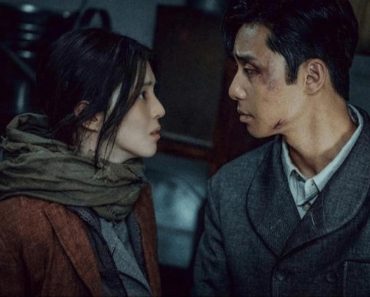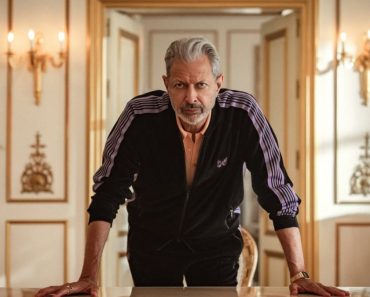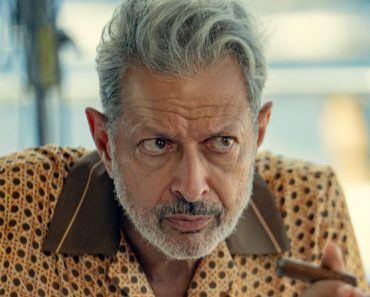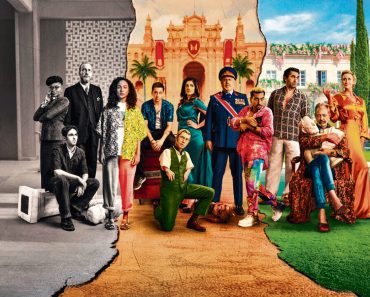First there was Chaos, Hesiod wrote in Theogony, his thousand-line poem recounting the birth of the gods and the material universe they personified. The first of the primordial gods, Chaos was the mother of Darkness and Night. Hesiod portrayed her as the emptiness from which all things arose. Later Ovid told it differently, describing Chaos as a densely packed jumble of everything yet to come. Fast-forward a few millennia and Netflix’s Kaos has its own take on the eternal question of whether something – however incomprehensibly dark – is less terrifying than nothing.
Chaos also figured in early Greek cosmology as the abyss of the underworld, where the action quickly takes us after Zeus (Jeff Goldblum), primary Olympian and charismatic rapist, is displeased one morning by a wrinkle on his forehead.
Like any real housewife of Mount Olympus, Zeus is accustomed to filling his empty days with hedonism and violence as he swans around his palace drinking nectar in luxury athleisure wear. Recently, however, his #blessed life has been rudely interrupted. That irksome little wrinkle – together with an act of unthinkable sacrilege by a rebellious group of Trojans down on Krete – has got him thinking that a prophecy foretelling his fall is about to come true.
Zeus is the king of the gods but his jurisdiction does not extend to matters of fate. He is similarly powerless in the face of his own dysregulated drives and emotions. The upshot is that no hero, half-god or human is safe from his now highly inflamed insecurity and rage.
The gods, too, are nervous – and with good reason. There’s Zeus’s son, party boy Dionysus (Nabhaan Rizwan), the only one of his numerous children who can stomach being around their bad dad; Zeus’s wife/sister, Hera (Janet McTeer), flanked by her guard of silent priestesses; and their brother Poseidon (Cliff Curtis), who would rather be having boat drinks on his yacht. As in all good dysfunctional family dramas, each has something to hide.
The interlinked destinies of three mortal strangers strongly indicate that Zeus is not merely being paranoid. Eurydice (Aurora Perrineau), unhappily married to pop star Orpheus (Killian Scott), swaps one form of emptiness for another. Ariadne (Leila Farzad), the only surviving heir of King Minos (Stanley Townsend), is realising that her tidy reality is built on lies. And Caeneus (the brilliant Misia Butler), labouring with his three-headed dog in the purgatorial “Centre for the Unresolved”, is about to have his (under)world turned upside down when he discovers the true extent of his power.
Krete, where humans are busy with their own forms of distraction and violence, is recognisably modern, except when it isn’t. There are cars, cameras and guns, but no mobile phones – instant communication remains the prerogative of the gods. Those merciless deities may be propitiated, if and when it suits them, but destiny is an entirely different matter. Kaos sets a new standard in its sublime depiction of the fearsome Fates – Lachesis (Suzy Izzard), Clotho (Ché) and Atropos (Sam Buttery), and the Furies – Alecto (Cathy Tyson), Tisiphone (Donna Banya) and Megaera (Natalie Klamar).
Soon, Hades (David Thewlis) and Persephone (Rakie Ayola), both splendidly grim in the bright upper air, earnestly report from their chthonic bureaucracy to deliver bad news to Zeus. The king and queen of the dead have been given more than even the most diligent administrators can handle. It is at this point that the series truly comes into its own.
No matter how many times one studies them, the sheer density of the classical myths gives them the quality of dreams in which the centre cannot hold, as names and connections fade in and out of view. This narrative confusion hovers at the edges of the show’s earlier episodes but is mostly kept at bay through the fitting device of a one-man chorus. Who better to warmly illuminate the backstabbing behaviour of the gods for us mere mortals than fire-bringer Prometheus (Stephen Dillane)? With an enthralling new storyline of his own, Zeus’s frenemy wryly comments on the action even as his liver is pecked out by an eagle.
The writer Joseph Campbell described myth as that which “never was but always is”. Kaos creator Charlie Covell spoke to this enduring quality recently, telling Cosmopolitan UK, “[T]he thing about the myths is they are eternally relevant because they are so deeply human. Kind of disappointingly, yet hopefully, humans don’t seem to change that much. You can press pause on any moment in human history, and the myths will be relevant in that moment, because they’re about power, death, abuse of power, oppressed people, dysfunctional families and love in all forms.”
Careers have been spent arguing about the precise nature of this continuing relevance, as well as the meaning and purpose of myth. In that vast sea of scholarship, the stories have variously been described as a pre-scientific explanation of the natural world, a politically useful encoding of the social order and a balm for the brief brutality of human life. Yet, like the characters populating its stories – and life itself – myth resists reduction. It is dynamic and fluid: never one thing only. This perhaps accounts for the persistent resonance of its stories and their unparalleled ability to captivate everyone from Hesiod to Netflix executives.
From cinematography to casting, soundtrack to plot lines, unified variation is both the medium and the message of Kaos. The breadth and depth of its representations of gender, sexuality, disability and race mean that this fantasy series reflects reality with greater precision than most television shows. This is another way it gestures towards that which “never was but always is”. Like the classical myths, the show’s aesthetics are not merely decorative. They are integral to its world-building, anchoring our conception of fairness and possibility.
There is an obvious temptation to describe Kaos as telling an old story in new ways, but that would be misleading. In radical acts of refusal, the show overrides certain laws that are fundamental to the structural integrity of the mythic universe, its deathless gods and mortal humans, hubristic and otherwise. Like all intricately interwoven threads – as Alecto puts it in a different context – “once you start to pull at it, everything unravels”. Which may be the point. Despite its fidelity to the themes and emotional force of the classics, in writing its own rules Kaos sails past the limits of that known world.
It is true the gods were unconcerned with human need, viewing mortals as entirely expendable. However they cannot, within the logical bounds of the classical story-world, be conflated with garden variety oligarchs, dirty captains of industry or father-wounded politicians whose power depends on nothing more than some lucky combination of sociopathic greed, distraction, lies, fear and force.
Similarly, though humans have never been comfortable with the limits – or extent – of our personal and collective power, there is little room in the classical context to depart from its binary of free will or fate when it comes to conditions that constrain lives. It’s most accurate to say that in its complex representations of human agency in the face of everything we can and cannot control, Kaos is building a new and necessary story from the materials of the past.
One of the most compelling insights into myths and our continuing attraction to them came from the psychologist James Hillman, who said they explain nothing. Rejecting any understanding of myth that flattened it into didactic functionality, Hillman taught instead that the mythic world view uses the language of our dreams to tantalise, provoke, delight, confuse, comfort and enliven us to become more curious and critical about how we understand the forces at work in our own lives. This symbolic richness is gloriously alive in Kaos as it considers questions of faith, fear, fate and freedom.
“Love is the point of everything,” Prometheus tell us, “but it’s often the problem too.” The true shock of these stories isn’t how brutal life is, but that we manage somehow to remain hopeful despite it all. In its moments of excruciating tenderness, as it negotiates a new balance between the forces of stasis and change, Kaos arguably does more interesting things with that ambiguous optimism than can be found in the original stories. It is a show that doesn’t only ask questions, it enacts answers, each with the same prophecy at its centre: another world is possible.
Kaos is streaming on Netflix.
ARTS DIARY
OPERA Gilgamesh
Carriageworks, Gadigal Country/Sydney, September 26–October 5
INSTALLATION love.exe
Arts House, Naarm/Melbourne, until September 28
EXHIBITION Here and Now: Gold Coast Triennial
Home of the Arts Gallery, Yugambeh Country/Gold Coast, until February 16
VISUAL ART Artists to ice
Tasmanian Museum and Arts Gallery, nipaluna/Hobart, until February 9
MULTIMEDIA Me Also Me
Art Gallery of Western Australia, Whadjuk Noongar Country/Perth, December 8
LAST CHANCE
CINEMA Darwin International Film Festival
Cinemas throughout Garamilla/Darwin and Jawoyn, Dagoman and Wardaman Country/Katherine, until September 22
For almost a decade, The Saturday Paper has published Australia’s leading writers and thinkers.
We have pursued stories that are ignored elsewhere, covering them with sensitivity and depth.
We have done this on refugee policy, on government integrity, on robo-debt, on aged care,
on climate change, on the pandemic.
All our journalism is fiercely independent. It relies on the support of readers.
By subscribing to The Saturday Paper, you are ensuring that we can continue to produce essential,
issue-defining coverage, to dig out stories that take time, to doggedly hold to account
politicians and the political class.
There are very few titles that have the freedom and the space to produce journalism like this.
In a country with a concentration of media ownership unlike anything else in the world,
it is vitally important. Your subscription helps make it possible.






